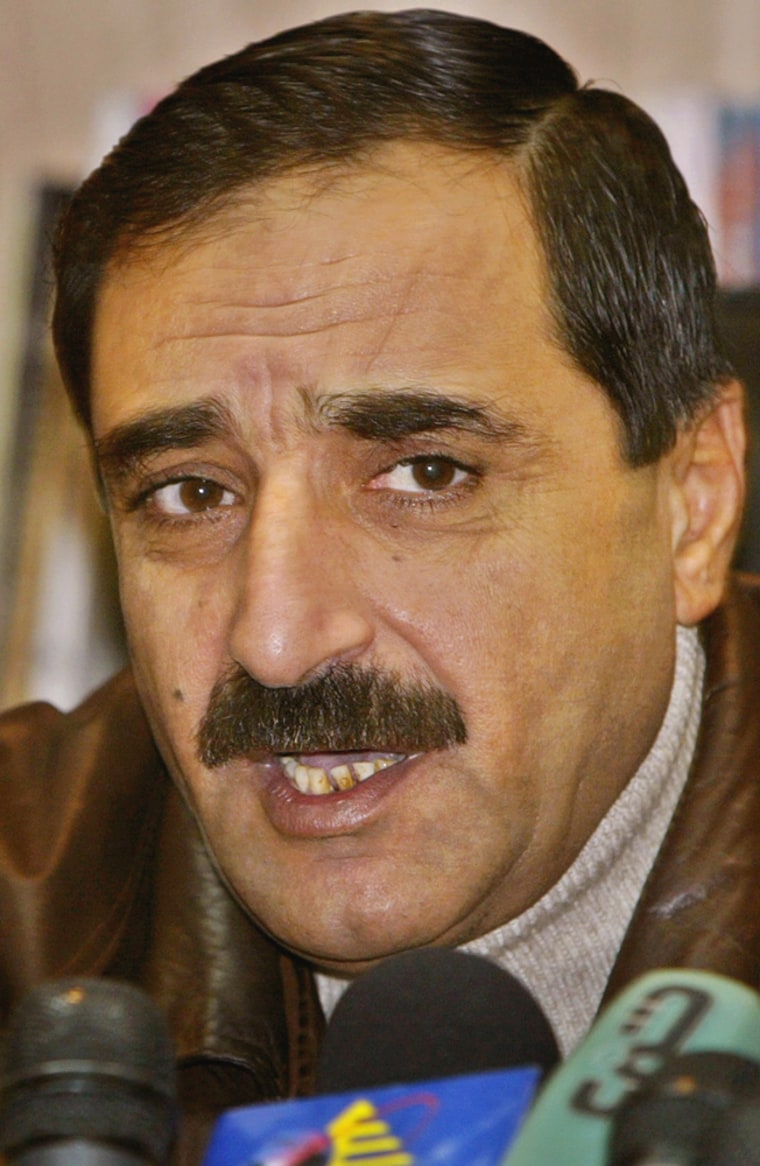Palestinian police thwarted an attack Sunday on a security commander — the second ally of President Mahmoud Abbas targeted in two days — as the rivalry between his moderate Fatah Party and the Hamas militant group threatened to explode.
Abbas called on both sides to do everything possible to avoid violence and said he would open talks with Hamas later this week to end the dangerous power struggle.
“Civil war is the red line that nobody dares cross, no matter which side they are on,” Abbas told reporters at the World Economic Forum in the Egyptian Red Sea resort of Sharm el-Sheik.
Abbas met Israeli Foreign Minister Tzipi Livni there — the first high-level talks between Israelis and Palestinians since Hamas beat Fatah in January parliamentary elections.
Violence spread to the southern Gaza city of Khan Younis early Monday. A Fatah gunman was killed and another wounded in a shooting attack, security officials said, but it was unclear whether the incident was related to the Hamas-Fatah violence.
Fatah gunmen and members of the new Hamas security force faced off at the hospital where the two were taken, but no clashes were reported.
Since the Hamas Cabinet took power in March, tensions have risen as Abbas and the militant group vie for power. Abbas was elected separately last year.
154-pound bomb found
In an effort to consolidate his control over the Fatah-dominated security forces, Abbas installed close ally Rashid Abu Shbak as the commander of the three branches that fall under the Hamas-controlled Interior Ministry.
On Sunday, security forces discovered a 154-pound bomb planted along a route used by Shbak’s motorcade, and security officials said it was intended to assassinate him. The explosives were found as police conducted their daily inspection of Shbak’s route before he heads to work, officials said.
The discovery came a day after Abbas’ intelligence chief was seriously wounded when a bomb filled with metal pellets ripped through an elevator shaft in his Gaza City headquarters.
Fatah officials hinted they believed Hamas was behind both incidents but stopped short of making an open accusation.
“There is a clear conspiracy aimed to target Fatah leaders and the security chief in the Gaza Strip with suspicious objects. What happened today near Abu Shbak’s house and yesterday with the intelligence services is proof of this,” Fatah spokesman Tawfiq Abu Khoussa said.
After the bomb was discovered, hundreds of Fatah activists took to the streets in Gaza City, expressing support for the security forces and volunteering their services. The Fatah-dominated Preventive Security agency also stepped up patrols in Gaza City and restricted access to its headquarters.
With no direct control of any security branch, Hamas formed its own 3,000-strong security force and sent it into Gaza’s streets last week despite Abbas’ veto.
Fatah officials have demanded the new black-clad force be disbanded, and about 1,000 Fatah supporters rallied against it in the southern Gaza town of Rafah on Sunday. Gunmen, some of them masked, fired rifles in the air as an activist in a car shouted through a loudspeaker, “No to the black militia!”
Hamas forces left the streets before the Fatah march.
Appeal from Abbas
Abbas appealed to Livni to restore regular contacts between Israelis and Palestinians. Israel has refused to deal with the new Palestinian government as long as Hamas does not recognize Israel and renounce violence.
During their 45-minute meeting, Livni assured Abbas that Israel remained committed to the internationally backed “road map” peace plan. They also discussed plans for Abbas and Israeli Prime Minister Ehud Olmert to meet soon.
“It was a very good meeting, a very important meeting and the first of many,” Livni said.
Even as Livni reached out to Abbas, she appealed to the international community to remain firm in its rejection of Hamas.
“It is a terrorist government, on the other hand we want to help the Palestinian people and not to punish them. ... This was part of the discussion,” Livni said.
A Western economic boycott of the Hamas-led government has crushed the Palestinian economy and led to fears of a humanitarian crisis.
$11 million for medical supplies
Israel’s Cabinet on Sunday approved the release of $11 million in frozen Palestinian funds to buy desperately needed medical supplies for the Palestinians. Olmert said the aid would be given directly to Palestinian hospitals to ensure the money is not diverted to militants.
Abbas wants Israel to conduct peace talks through him, bypassing Hamas. But Olmert played down that possibility in an interview with CNN broadcast Sunday.
“Abbas doesn’t have even the power to take charge of his own government,” Olmert told “Late Edition” ahead of his Sunday visit to Washington. “So how can he represent that government in the most crucial, complex and sensitive negotiations, about which there are so many divisions within the Palestinian community?”
Also Sunday, Israel’s Defense Ministry approved expanding the boundaries of four Jewish settlements, a practice the United States has opposed previously.
Olmert has said he will draw Israel’s borders, unilaterally if necessary, by 2010, dismantling many West Bank settlements and incorporating the largest settlement blocs into Israel. Three of the settlements slated for expansion lie within areas Olmert hopes to annex.
